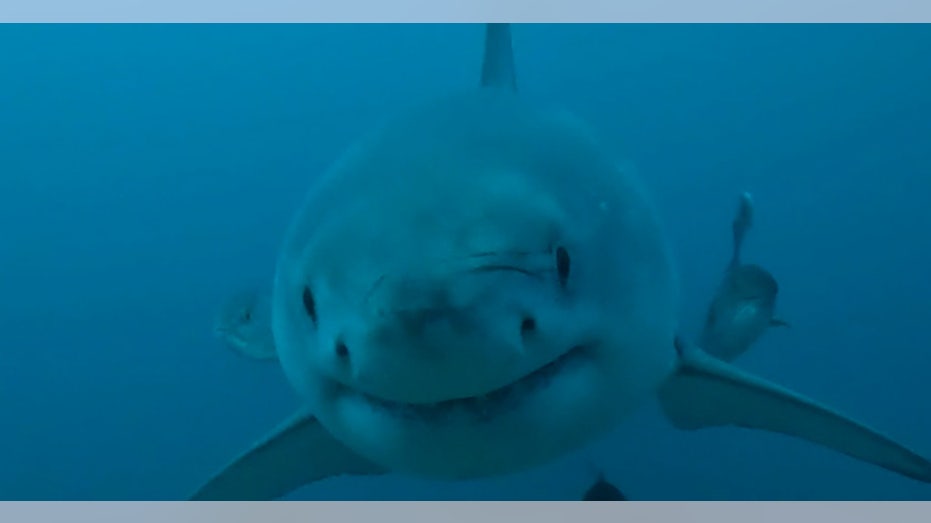Female great white shark spotted twice off Alabama coast in past month
A great white shark, now named Miss Pawla, was spotted twice off the coast of Alabama while researchers were monitoring fish movement in an artificial reef zone.

A female great white shark has been spotted off the Alabama coast two times in the past few weeks, according to researchers at the University of South Alabama (USA).
Now known as Miss Pawla, named after one of USA's mascots, the shark is approximately eight feet long and about 15 years old based on her size. The researchers said she won't reach maturity until at least 30 years old, as white sharks can live more than 50 years.
She was spotted on two separate occasions while researchers were monitoring fish movement near Alabama's artificial reef zone, according to the university.
The first sighting took place with underwater cameras in mid-April during a survey with researchers from Mississippi State University and Florida's Fish and Wildlife Institute and the second sighting came ten days later. By May 3, she was no longer seen in the area.
DRONE FOOTAGE SHOWS SHARK CIRCLING MAN AND SMALL CHILD AT ALABAMA BEACH
Dr. Sean Powers, Director of USA's Stokes School of Marine and Environmental Sciences, said the spotting of a great white off the Alabama coast is rare since they tend to stay in the cooler waters off New England and California. Sometimes they are seen in the deeper areas of the Gulf of Mexico.
The reef where Miss Pawla was spotted is only approximately 150 feet deep, which marks the first sighting in that area recorded by scientists.
"We have surveyed over 1,000 artificial and natural reef areas over the last 10 years, providing scientific data to assist the State of Alabama in managing its offshore fisheries," Powers said. "This is our first documented sighting of a white shark."
VIDEO: ALABAMA SPEARFISHER SPOTS 10-FOOT-LONG 'GREAT WHITE SHARK' ALONG GULF COAST
Great white sharks have been reportedly spotted recently in coastal Alabama – one was caught by fishermen and another washed up dead on a Florida Panhandle beach – which leads researchers to believe the species may be more common in the northern Gulf of Mexico than they thought.
White sharks have unique scarring patterns, particularly on the head and fins, which makes them easily identifiable, the university said, and scientists normally name them so they can track their movements.
Miss Pawla has never been recorded before, which allowed the university to name her. Researchers at the school are already tracking a 12-foot tiger shark, named SouthJaw, also after a USA mascot.
"Alabama has a rich marine ecosystem, and sharks are an important element," the university said in a news release, adding that white sharks are federally protected and must be released alive if caught.



